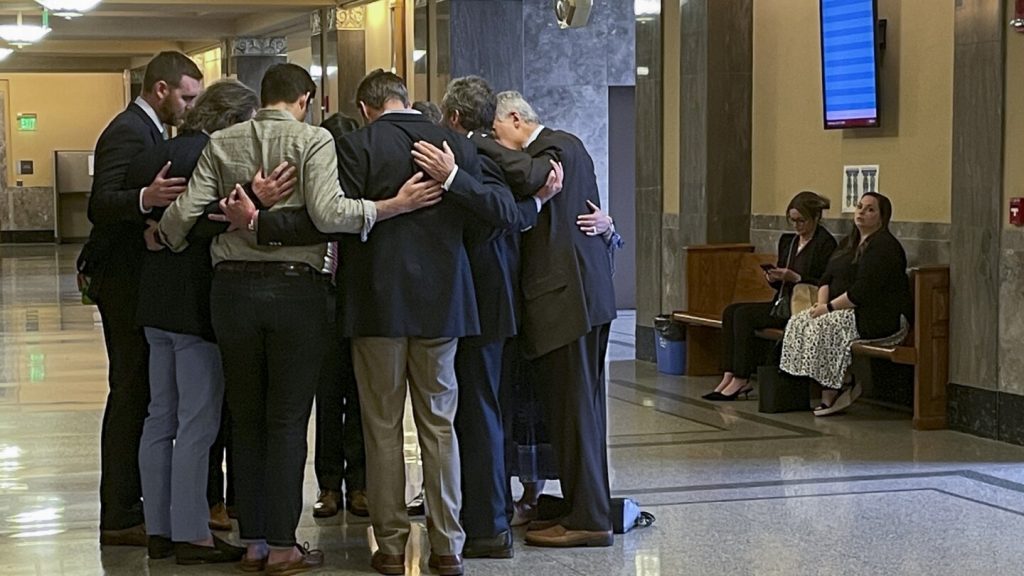A Tennessee judge is considering whether the writings of a school shooter should be released to the public once the investigation is closed. However, the parents of children at the Covenant School claim to have gained legal ownership of the writings and hold the copyright. Attorneys representing various parties in the case, including news outlets, gun-rights groups, and the school, argued before the judge about the interplay of federal copyright protections and the Tennessee Public Records Act. The judge, I’Ashea Myles, indicated that she would write an order outlining specific questions before ruling on the release of the writings.
Police have collected the writings as part of their investigation into the shooting at the Covenant School that resulted in the deaths of three 9-year-old children and three adult staff members. While the police maintain that the writings are public records, they cannot be released until the investigation is concluded. Various groups have argued for and against the immediate release of the writings, with concerns about privacy, school security, and victims’ rights being brought up by different parties involved in the case.
Despite arguments from attorneys representing the Covenant parents, the Covenant School, and the Covenant Presbyterian Church about the potential risks of releasing the writings, Judge Myles seemed skeptical of their interpretation of a Tennessee law protecting school security information. She questioned whether writings in a journal should be considered plans related to school security and expressed concerns about setting a precedent that could impact future cases. Attorneys also raised concerns about the impact on the children at Covenant School, arguing that releasing the writings publicly could harm them and violate their rights.
As the hearing continued, Judge Myles pushed back on broad interpretations of victims’ rights, questioning whether releasing the writings would constitute harassment, intimidation, or abuse and whether victims’ rights extend indefinitely. She also raised the possibility that some parents at the school may want the writings released, highlighting the need to consider different perspectives within the community. Ultimately, Myles acknowledged the emotional weight of the case, expressing sympathy for the children involved but emphasizing the need to interpret the law as written by the legislature.
With the decision looming, Judge Myles acknowledged the complexities of the case and the challenges involved in balancing legal considerations with emotional responses. Despite her personal feelings as a mother, she underscored the importance of interpreting the law objectively and setting aside personal emotions. The outcome of the case will have significant implications for the release of sensitive information related to the school shooting and may set a precedent for similar cases in the future. As the legal proceedings continue, the public and involved parties await the judge’s ruling on whether the writings of the school shooter will be made public.


